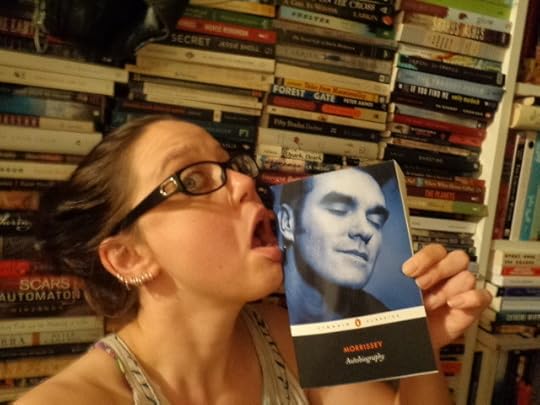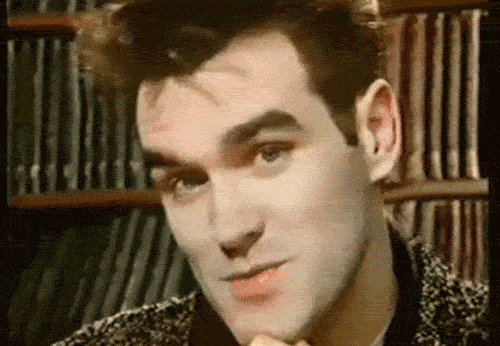What do you think?
Rate this book


457 pages, Paperback
First published October 17, 2013


"Morrissey, though, didn’t have to attain the chip of being needily undervalued; he was born with it. He tells us he ditched “Steve”, his given name, to be known by his portentous unimoniker because — deep reverential breath here — great classical composers only have one name. Mussorgsky, Mozart, Morrissey.
His most pooterishly embarrassing piece of intellectual social climbing is having this autobiography published by Penguin Classics. Not Modern Classics, you understand, where the authors can still do book signings, but the classic Classics, where they’re dead and some of them only have one name. Molière, Machiavelli, Morrissey.
He has made up for being alive by having a photograph of himself pretending to be dead on the cover."
From nowhere comes the California cobra chords of Run run run by Jo Jo Gunne and Heaven must have sent you by the Elgins- wide variables on an open pitch, all adapting to different listeners- the well and the ill. All of this starts me, and I cannot stop. If I can barely speak (which is true), then I shall surely sing.
The written word is an attempt at completeness when there is no one impatiently awaiting you in a dimly lit bedroom- awaiting your tales of the day, as the healing hands of someone who knew turn to you and touch you, and you lose yourself so completely in another that you are momentarily delivered from yourself. Whispering across the pillow comes a kind voice that might tell you how to get out of difficulties, from someone who might mercifully detach you from your complications. When there is no matching of lives, and we live on a strict diet of the self, the most intimate bond can be with the words that we write.
